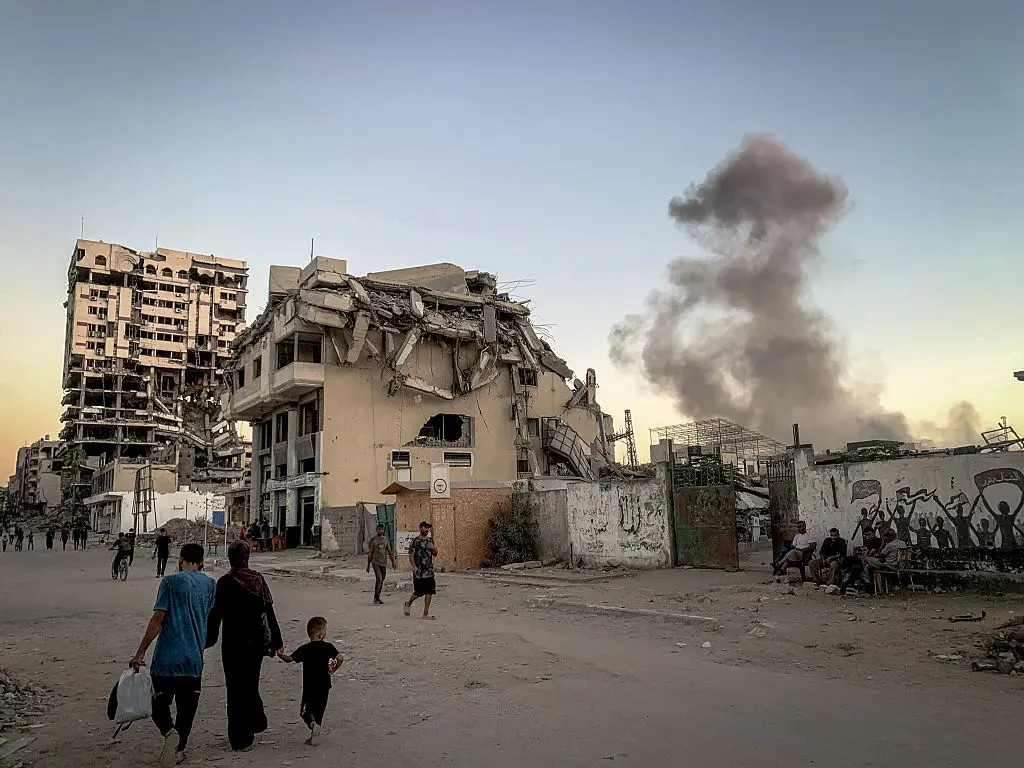How Faith Leaders Can Heal the Wounds of Gaza
ArticlesThe first signs of peace are visible in Gaza after two years of devastation, and there is finally a glimmer of hope. U.S. President Donald Trump’s plan has led us to a place where the remaining Israeli hostages can return home, and the fighting in Gaza can be halted.
Such steps deserve welcome, for they remind us that faith in dialogue and justice still has the power to guide us toward reconciliation. As Secretary General of the Muslim World League, I feel the weight of this moment profoundly. Now that we have a positive step forward in the negotiations between politicians and diplomats, religious leaders have an essential role to play in rebuilding lasting peace.
The wounds run deep. Hamas’s brutal assault on Oct. 7, 2023 claimed nearly 1,200 lives in Israel. Many of the around 250 hostages taken that day have since died. Their suffering, and that of their families, must never be forgotten. The two years that followed have brought unimaginable devastation to Gaza. Tens of thousands of Palestinians have been killed, among them thousands of children whose lives ended before they began. Entire neighborhoods have been destroyed, hospitals struggle to function, and families face hunger and displacement.
For those who remain, daily life is defined by loss, exhaustion, and extreme hunger. This war has shown the world once again that violence only breeds more violence, and the task before the international community is no longer to imagine peace, but to begin the hard work of reinforcing it. The ceasefire deal is just the beginning.
Against this tragic backdrop, momentum has already been gathering around the recognition of Palestine. Following recent announcements by Britain, France and others, around 150 United Nations member countries officially acknowledge the state of Palestine, reflecting a near-global consensus that two sovereign nations represent the only viable path to peace. And in mid-September, the United Nations General Assembly endorsed a declaration on the peaceful settlement of the question of Palestine, backing concrete steps toward a two-state solution by setting out a clear timetable for progress, condemning Hamas’s Oct. 7 attack, and calling for an immediate release of hostages and an end to the war in Gaza. This vote was one of the clearest signals yet that the international community sees peace as achievable only through two states living side by side.
Of course, recognition alone will not set us on a path to lasting peace, but it creates a foundation on which negotiations can begin and hope can return. As the events of recent days underline, the diplomatic shift is clear. And so now, religious leaders must also fulfill their crucial spiritual role to bridge divides, nurture trust, and help heal the wounds of war.
This year alone I have met with dozens of leaders around the world, from government ministers to senior religious figures, in conversations that span cultures and perspectives. Such dialogue serves a clear purpose: to keep every channel of communication open until a lasting peace is possible. Our mission for peace is global, rooted in the conviction that dignity and coexistence can only be secured when dialogue remains alive. The Muslim World League will continue to support dialogue across faiths and nations, believing that peace built on mutual recognition is both possible and necessary.
Nowhere is this more urgent than in Gaza and Israel, where two years of devastation have left families shattered and entire communities on the brink, on both sides of the divide. History will not forgive us if we fail. The international community must summon the courage to ensure that both communities, Israelis and Palestinians, can live in peace and with security.
For far too long, the hearts of both Muslim and Jewish people have been broken, and we cannot allow this tragedy to continue. We have seen how hatred can spill into our streets and places of worship, tearing at the bonds that hold communities together.
Acts of violence have shown how fragile coexistence can be, and how quickly fear can replace understanding. These moments remind us that the work of peace must also begin at home, in towns, schools, and neighborhoods, wherever intolerance and resentment take root across the world. Ending the war is only the beginning, for lasting peace requires rebuilding trust, restoring dignity, and renewing our commitment to one another.
The ceasefire is an essential first step but more must follow, not just from politicians but faith leaders as well—to bridge divides, and to bring our communities together to heal the wounds this war has opened.
This article was originally published in The Times, Read here.


